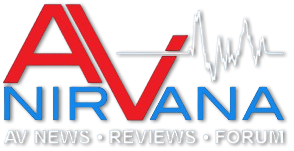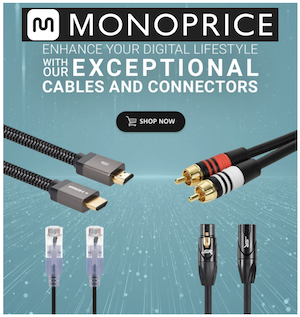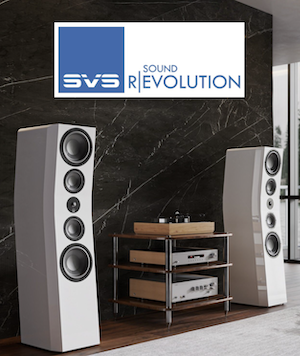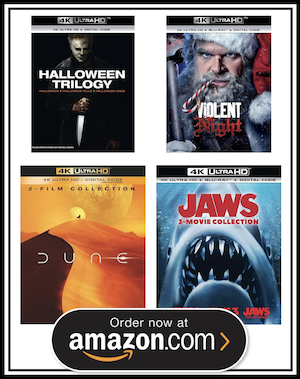Allen Rumbaugh
Member
Thread Starter
- Joined
- Oct 28, 2017
- Posts
- 33
More
- Preamp, Processor or Receiver
- Sherbourn preamp
- Main Amp
- Enlightened Audio Designs Powermaster 1000
- Additional Amp
- Emotiva UPA-700
- Universal / Blu-ray / CD Player
- Oppo UDP-203
- Streaming Subscriptions
- Yamaha Motif XS
- Front Speakers
- RCF monitor 6
- Subwoofers
- Bag End ELF
Hello Everyone,
I have spent my life in music and audio, I majored in Trombone at UTK (jokingly called the trombone factory, for the vast number of great trombone players produced by my professor, who recently retired after 50 years teaching, Don Hough. Along the way I played in a band that had a 2 year contract to play 5 sets a night, six nights a week at Ramada Inn on the west side. I recruited the best trumpet player at UT to play trumpet, and one night about six months in I decided to walk out to the bar and hear the trumpet solo from the audience perspective. This turned out to be a life changing event, because the sound coming from the PA system was not even remotely close to the tone of the trumpet (trust me I know what that is) and this made me very angry. Angry that we spent uncounted hours chasing tone and delivering it live, but it was being contorted by a bunch of wires and boxes. I got into audio because I wanted to find out "what is wrong with that thing?"
So I got a job at Dixie Hi Fi, the predessesor of Circuit City selling hi fi equipment. I made a reel to reel copy off of my turntable of "Songs in the Key of Life" The great work by Stevie Wonder and wrote up countless stereos while it played. After Christmas I went on a break back to middle Tennessee and visited a drummer I knew that was living on "music row" in Nashville. He told me of all the things he was involved in like demo sessions, master sessions, trust fund gigs, etc, NONE of which they taught us about in music school so I was determined to make the jump to Nashville. I got a transfer with Dixie the next week (amazing) and moved to Nashville in my Volkswagen Bus. In my belongings was a Crown DC300A at that time the king of the jungle of professional amplifiers. I had taken to using Pioneer receiver boxes with the strings on top to carry it around in (free vs $$ for a proper road case) I piled up my belongings in the floor and a salesman who was already there said facetiously "Nice receiver you've got there" (His name is Jim Patten, now a VP at Control4) So I said "why don't you open it up make sure it is ok?" He undid the strings and his eyes bugged out when he saw the Crown. We were instant friends.
So we chugged along selling stereos by the truckload until one of my cohorts got a job at Masterphonics (a mastering studio on music row) and called me up to tell me of an opportunity in the same building with Nashville Studio Systems a company owned by Joe Overholt (a sax playing electrical engineer on the design team at Texas Instruments that invented the integrated circuit chip.
I have to take a break, I will come back later and continue this saga.....
I was the sales manager for pro audio equipment for Joe. We had Tascam, Sound Workshop, JBL, and all the other things you needed to create a studio. I was in audio heaven, and the only problem was I didn't sell anything for 2 months. I became of course concerned, and counseled with another worker there, John Boyle. John was the original National Sales Manager for Tascam, was from California and had come to Nashville to take album cover photos for Joe's record label Direct Disk Labs. He told me to unscrew the mic part of my telephone and listen to him while he closed the deal with Bert Bayes, a studio owner in Mississippi. I was astounded because he did not talk about the equipment unless Bert asked a specific question, the rest of the time carrying on about golf, sunday school, etc. It was a profound capital equipment sales lesson. So I hooked up with my first studio sale to a songwriter named Even Stevens who was living in his jeep in the alleys of music row and had gotten a job at Deb Dave Briarpatch publishing run my Jim Malloy who started it from scratch. He signed a writer who wanted to be an artist that had an Elvis cut. He wrote "Kentucky Rain" Jim signed him to a management/publishing deal. His name was Eddie Rabbit.
So as I was rolling out the Tascam 8 track reel to reel on a two wheeler, the lead tech for the company, George Juodenas, asked me what I was doing. "I'm delivering this 8 track to Deb Dave Briarpatch!" "Not yet you're not, we have to take it out the box, warm it up, and mechanically and electrically align it." "Right Now? Can I watch?' George said sure and that is the day he started being my technical mentor. George moved to Nashville from New York, where he earned an associate degree from the Institute of Audio Research, then was employed 4 and a half years at A&R Recording Studio as one of Phil Ramone's assistants. We ended up becoming partners, and struck out on our own. We blazed a trail through the Nashville studios, working with the biggest and the best and over the course of 7 years sold and installed studios such as Emerald, Marty Robbins Recording, Warner Brothers Loft, Warner Chappell Music, House of Gold Music, Silverline Goldline, Music City Music Hall, Bradley's Barn, and many others. After seven years, our style of pro audio sales became obsolete. By that I mean if you bought from us, you got the whole tamale. We calibrated and tweaked every piece of equipment we sold. You did not get your studio until we were done with it, testing every component for absolute polarity, a time consuming process. People who did not understand such fanaticism wanted the equipment in the box, unopened, along with a lower price. So we exited the business in 1985, when Tascam, one of our primary lines opened up a stereo store 3 blocks from our office.
In 1986 on a chance phone call I became a Regional Manager for Mitsubishi Pro Audio Group. Mitsubishi had developed a digital 32 track recorder, bought the Quad Eight console company along with Westrex film audio equipment manufacturers and opened a San Fernando CA as well as New York, London, and Toronto offices. I ran the "mid America" office from Nashville, covering from Key West to Chicago to El Paso. Before I started I had a month of training in California spending a week each at Hanna Barberra, The Burbank Studios, Conway Recording, and the last week at Skywalker Ranch in northern CA. Whew, that will never be repeated. So the last show I worked for Mitsubishi we were in Los Angeles for the AES convention. The convention had moved from the LA Hilton to the convention center downtown, where I was based, but there was a shuttle to the Hilton where 10 manufacturers had displays. On Sunday I had a break and rode the shuttle to check it out. Yamaha was the first and only exhibitor I remember there. I walked in and all these guys where oohing over this small mixer. I asked what the big deal was and they said it was a digital mixer. I asked how much and they said $4000.00 which shocked me. At the time I was a denizen of the top recording facilities in the world. They were the only ones who could afford our stuff. For example the 32 track meter bridge which mounted on the remote control sold for $10,000.00. Right then I was Yamahaed that is they blew me away with a demo. They had 2 of the 8 channel mixers cascaded, aTX816 (eight DX-7 synthesizers in a rack, an RX-8 drum machine, and all parameters of all equipment were under control of a QX-1 sequencer. Automated mix down and recorded performance simultaneously. It was a smackdown, I was blown away. I immediately commented to them that if they kept this up, they would take over the top recording studio market. They looked at me with a puzzled look, they hadn't considered that prospect. I knew that Mitsubishi Pro Audio Group was coming to a close, once you sell all the studios at the top of the pyramid, the second and third levels down could not afford the hardware. So when I got back to Nashville I called an old friend, Larry Padgett who owned Music Man (a music store) that was the high tech store of Nashville. I used to spend Saturday afternoons there toying with the synthesizers at the time I was running my own company. Music Man was a Yamaha dealer (they sold 2,000 DX-7's when they were the rage at $2000.00 a pop.) I asked him if he had heard about the new digital mixers, he said no, and that I should come talk with him. I did and he offered the job of Store Manager. I stayed there 4 years and became the top Fostex salesman in America (the E-16 a 16 track 1/2" recorder sold for $6000.00 at the time, I sold a couple of dozen of them in packages to songwriters, publishing companies etc.) I was used to selling 30,000.00 a month for years, but it came to a crashing halt with the introduction of the Alesis digital 8 track, the ADAT. Alesis announced its arrival at a January NAMM show, but didn't deliver for a year. Everyone in the market was paralyzed, fearing their investment in analog gear would be wasted. (A pity because that analog equipment would still sound good TODAY.) At Music Man we had a guy who went out to sell church pa systems. He would come to me with his designs, and I would point out mistakes such as parallel wiring of microphones, he would argue, saying that it worked when he did it, but I told him analog was a forgiving technology, but that if he followed the directions in "The Audio Cyclopedia" it would sound better. I was done arguing and he went out and executed his designs, then was offered a job at MUZAK (a good fit ha ha) and left. Larry then sent me out to answer the calls from the churches he was getting so I went out and reversed the actual things I had argued about, and it did sound better and the churches gladly paid to set things right. In a way I was struck by how I had flown so high in the studio world, but then the market successfully separated sales from service. I got calls to come install studios, align tape decks, etc, but always responded with "why don't you call your salesman, he is the one who should service you." so those calls dwindled and stopped. Meanwhile I was doing good old nuts and bolts audio for the churches, and I saw vast opportunity. So I left Music Man and started being an audio contractor that focused on Churches, Businesses, and Custom Residential. That began in 1991 and I was busy to say the least. In 1995 my old partner George called me up and wanted to join up again. So the old team was back at it, we did some crazy jobs (one of which was a ground up design surround sound recording studio a year long project) but also a lot of major Church sound systems, Custom audio in residential homes, and an acoustics job for Precept Ministries in Chattanooga. This was a dolly wonker so I have to take a break.
I have spent my life in music and audio, I majored in Trombone at UTK (jokingly called the trombone factory, for the vast number of great trombone players produced by my professor, who recently retired after 50 years teaching, Don Hough. Along the way I played in a band that had a 2 year contract to play 5 sets a night, six nights a week at Ramada Inn on the west side. I recruited the best trumpet player at UT to play trumpet, and one night about six months in I decided to walk out to the bar and hear the trumpet solo from the audience perspective. This turned out to be a life changing event, because the sound coming from the PA system was not even remotely close to the tone of the trumpet (trust me I know what that is) and this made me very angry. Angry that we spent uncounted hours chasing tone and delivering it live, but it was being contorted by a bunch of wires and boxes. I got into audio because I wanted to find out "what is wrong with that thing?"
So I got a job at Dixie Hi Fi, the predessesor of Circuit City selling hi fi equipment. I made a reel to reel copy off of my turntable of "Songs in the Key of Life" The great work by Stevie Wonder and wrote up countless stereos while it played. After Christmas I went on a break back to middle Tennessee and visited a drummer I knew that was living on "music row" in Nashville. He told me of all the things he was involved in like demo sessions, master sessions, trust fund gigs, etc, NONE of which they taught us about in music school so I was determined to make the jump to Nashville. I got a transfer with Dixie the next week (amazing) and moved to Nashville in my Volkswagen Bus. In my belongings was a Crown DC300A at that time the king of the jungle of professional amplifiers. I had taken to using Pioneer receiver boxes with the strings on top to carry it around in (free vs $$ for a proper road case) I piled up my belongings in the floor and a salesman who was already there said facetiously "Nice receiver you've got there" (His name is Jim Patten, now a VP at Control4) So I said "why don't you open it up make sure it is ok?" He undid the strings and his eyes bugged out when he saw the Crown. We were instant friends.
So we chugged along selling stereos by the truckload until one of my cohorts got a job at Masterphonics (a mastering studio on music row) and called me up to tell me of an opportunity in the same building with Nashville Studio Systems a company owned by Joe Overholt (a sax playing electrical engineer on the design team at Texas Instruments that invented the integrated circuit chip.
I have to take a break, I will come back later and continue this saga.....
I was the sales manager for pro audio equipment for Joe. We had Tascam, Sound Workshop, JBL, and all the other things you needed to create a studio. I was in audio heaven, and the only problem was I didn't sell anything for 2 months. I became of course concerned, and counseled with another worker there, John Boyle. John was the original National Sales Manager for Tascam, was from California and had come to Nashville to take album cover photos for Joe's record label Direct Disk Labs. He told me to unscrew the mic part of my telephone and listen to him while he closed the deal with Bert Bayes, a studio owner in Mississippi. I was astounded because he did not talk about the equipment unless Bert asked a specific question, the rest of the time carrying on about golf, sunday school, etc. It was a profound capital equipment sales lesson. So I hooked up with my first studio sale to a songwriter named Even Stevens who was living in his jeep in the alleys of music row and had gotten a job at Deb Dave Briarpatch publishing run my Jim Malloy who started it from scratch. He signed a writer who wanted to be an artist that had an Elvis cut. He wrote "Kentucky Rain" Jim signed him to a management/publishing deal. His name was Eddie Rabbit.
So as I was rolling out the Tascam 8 track reel to reel on a two wheeler, the lead tech for the company, George Juodenas, asked me what I was doing. "I'm delivering this 8 track to Deb Dave Briarpatch!" "Not yet you're not, we have to take it out the box, warm it up, and mechanically and electrically align it." "Right Now? Can I watch?' George said sure and that is the day he started being my technical mentor. George moved to Nashville from New York, where he earned an associate degree from the Institute of Audio Research, then was employed 4 and a half years at A&R Recording Studio as one of Phil Ramone's assistants. We ended up becoming partners, and struck out on our own. We blazed a trail through the Nashville studios, working with the biggest and the best and over the course of 7 years sold and installed studios such as Emerald, Marty Robbins Recording, Warner Brothers Loft, Warner Chappell Music, House of Gold Music, Silverline Goldline, Music City Music Hall, Bradley's Barn, and many others. After seven years, our style of pro audio sales became obsolete. By that I mean if you bought from us, you got the whole tamale. We calibrated and tweaked every piece of equipment we sold. You did not get your studio until we were done with it, testing every component for absolute polarity, a time consuming process. People who did not understand such fanaticism wanted the equipment in the box, unopened, along with a lower price. So we exited the business in 1985, when Tascam, one of our primary lines opened up a stereo store 3 blocks from our office.
In 1986 on a chance phone call I became a Regional Manager for Mitsubishi Pro Audio Group. Mitsubishi had developed a digital 32 track recorder, bought the Quad Eight console company along with Westrex film audio equipment manufacturers and opened a San Fernando CA as well as New York, London, and Toronto offices. I ran the "mid America" office from Nashville, covering from Key West to Chicago to El Paso. Before I started I had a month of training in California spending a week each at Hanna Barberra, The Burbank Studios, Conway Recording, and the last week at Skywalker Ranch in northern CA. Whew, that will never be repeated. So the last show I worked for Mitsubishi we were in Los Angeles for the AES convention. The convention had moved from the LA Hilton to the convention center downtown, where I was based, but there was a shuttle to the Hilton where 10 manufacturers had displays. On Sunday I had a break and rode the shuttle to check it out. Yamaha was the first and only exhibitor I remember there. I walked in and all these guys where oohing over this small mixer. I asked what the big deal was and they said it was a digital mixer. I asked how much and they said $4000.00 which shocked me. At the time I was a denizen of the top recording facilities in the world. They were the only ones who could afford our stuff. For example the 32 track meter bridge which mounted on the remote control sold for $10,000.00. Right then I was Yamahaed that is they blew me away with a demo. They had 2 of the 8 channel mixers cascaded, aTX816 (eight DX-7 synthesizers in a rack, an RX-8 drum machine, and all parameters of all equipment were under control of a QX-1 sequencer. Automated mix down and recorded performance simultaneously. It was a smackdown, I was blown away. I immediately commented to them that if they kept this up, they would take over the top recording studio market. They looked at me with a puzzled look, they hadn't considered that prospect. I knew that Mitsubishi Pro Audio Group was coming to a close, once you sell all the studios at the top of the pyramid, the second and third levels down could not afford the hardware. So when I got back to Nashville I called an old friend, Larry Padgett who owned Music Man (a music store) that was the high tech store of Nashville. I used to spend Saturday afternoons there toying with the synthesizers at the time I was running my own company. Music Man was a Yamaha dealer (they sold 2,000 DX-7's when they were the rage at $2000.00 a pop.) I asked him if he had heard about the new digital mixers, he said no, and that I should come talk with him. I did and he offered the job of Store Manager. I stayed there 4 years and became the top Fostex salesman in America (the E-16 a 16 track 1/2" recorder sold for $6000.00 at the time, I sold a couple of dozen of them in packages to songwriters, publishing companies etc.) I was used to selling 30,000.00 a month for years, but it came to a crashing halt with the introduction of the Alesis digital 8 track, the ADAT. Alesis announced its arrival at a January NAMM show, but didn't deliver for a year. Everyone in the market was paralyzed, fearing their investment in analog gear would be wasted. (A pity because that analog equipment would still sound good TODAY.) At Music Man we had a guy who went out to sell church pa systems. He would come to me with his designs, and I would point out mistakes such as parallel wiring of microphones, he would argue, saying that it worked when he did it, but I told him analog was a forgiving technology, but that if he followed the directions in "The Audio Cyclopedia" it would sound better. I was done arguing and he went out and executed his designs, then was offered a job at MUZAK (a good fit ha ha) and left. Larry then sent me out to answer the calls from the churches he was getting so I went out and reversed the actual things I had argued about, and it did sound better and the churches gladly paid to set things right. In a way I was struck by how I had flown so high in the studio world, but then the market successfully separated sales from service. I got calls to come install studios, align tape decks, etc, but always responded with "why don't you call your salesman, he is the one who should service you." so those calls dwindled and stopped. Meanwhile I was doing good old nuts and bolts audio for the churches, and I saw vast opportunity. So I left Music Man and started being an audio contractor that focused on Churches, Businesses, and Custom Residential. That began in 1991 and I was busy to say the least. In 1995 my old partner George called me up and wanted to join up again. So the old team was back at it, we did some crazy jobs (one of which was a ground up design surround sound recording studio a year long project) but also a lot of major Church sound systems, Custom audio in residential homes, and an acoustics job for Precept Ministries in Chattanooga. This was a dolly wonker so I have to take a break.
Last edited:











